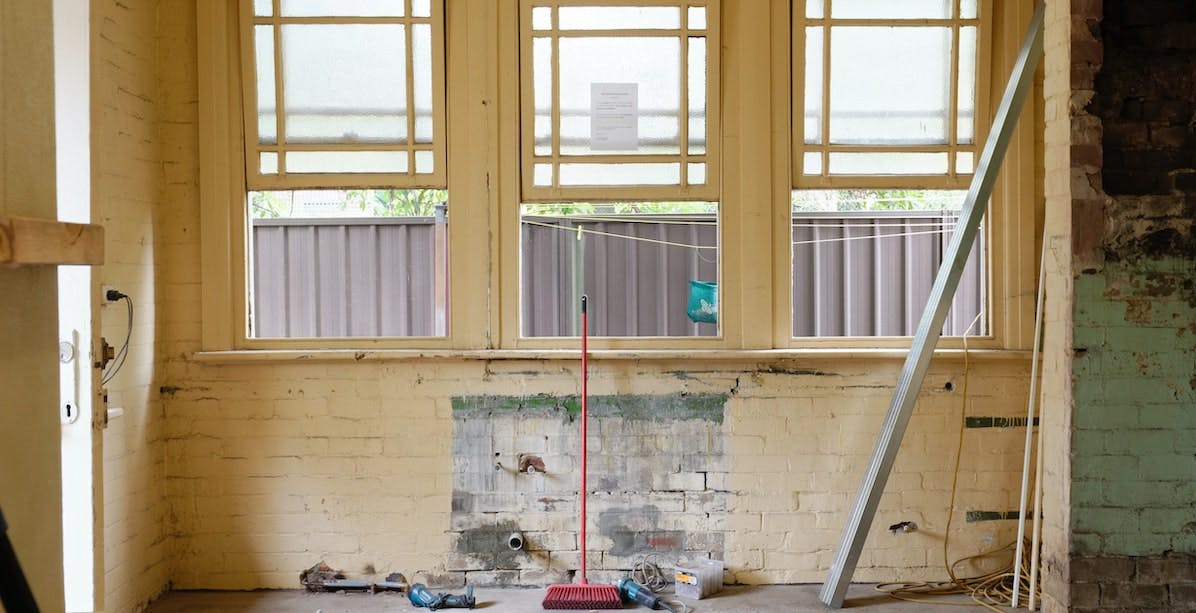Real Estate Investing
Should I Buy A Foreclosed Home? Pros And Cons
Last Updated Nov 1, 2022


You can find foreclosed homes in nearly every real estate market in the country, and buying a foreclosed home has become easier following the mid-2000s mortgage crisis. After the moratorium on foreclosures, in response to the COVID-19 pandemic, ended in July 2021, investors expected an increase in foreclosure. However, we’re still seeing a limited supply and significant competition. The greatest incentive in purchasing a foreclosed home is costs, but unpredictable timelines, repairs, and stiff competition may deter you from buying a foreclosed home.
What your need to know about buying a foreclosed home
There are several types of foreclosures: pre-foreclosure, short sale, sheriff’s sale, bank-owned, and government-owned. Every kind of foreclosure has unique characteristics, and the purchase process varies. Consider choosing a real estate agent who is familiar with the foreclosure process. They’ll be able to provide you with specific insight based on their experiences.
How do home foreclosures work?
When an owner can no longer make payments on their mortgage, the bank takes possession of the home. The bank usually sends a notice of default after 90 days of missed payments. Often, the homeowner has the opportunity to arrange for a new payment plan with the bank before the home is sold. If you’re buying a foreclosed home, you are purchasing the home from the bank, not the home's original owner.
Types of foreclosures
Pre-foreclosure: Once the owner is in default on their mortgage, they are notified by the bank. If the homeowner can sell the property during the pre-foreclosure period, they can avoid the foreclosure process and some of the impacts on their credit history.
Short sales: If a homeowner is enduring financial hardship, they may be able to sell their home in a short sale. The lender has to agree to accept less for the property than what the homeowner currently owes on their mortgage. Short sales can be lengthy because the bank has to respond and approve the deal.
Sheriff’s sale: Sheriff’s sales are auctions held after homeowners default on their loans. These auctions are facilitated by local law enforcement, hence the name sheriff’s sale. In these auctions, the home is sold to the highest bidder.
Bank-owned properties: If a home does not sell at auction, it becomes a real estate owner (REO) property. The mortgage lender, bank, or mortgage investor owns the property, and these types of properties are sometimes also called “bank-owned” homes.
Government-owned properties: Similar to REO properties, this type of home was initially purchased using an FHA or VA loan, both government-back loans. When these properties are foreclosed and do not sell at auction, they become government-owner properties. Then, they are sold by brokers who work on behalf of the agency which issued the mortgage.
Financing a foreclosed home
While all cash offers will provide your most significant advantage when buying a foreclosed home, various financing options are available for investment properties. Keep in mind that private lenders may be less inclined to finance the purchase of a foreclosed home. To expedite the process, consider choosing a lender and getting pre-approved for a mortgage loan.
If you are interested in purchasing a foreclosure, we recommend exploring the government-sponsored financing options available to those who qualify. A 203(k) loan is a type of financing provided by the Federal Housing Administration (FHA). There are several different types of 203(k) loans. You’ll generally be charged a mortgage insurance premium to offset the bank’s risk. You will also find the interest rates for these types of loans are about 0.25% higher than conventional loans.
The HomePath ReadyBuyer program is offered by the Federal National Mortgage Association (FNMA), or Fannie Mae, and primarily targets first-time home buyers. After participating in an educational course, homebuyers are eligible for closing cost assistance and other benefits.
Finally, the HomeSteps program may be a good option if you live in one of the following states: Alabama, Florida, Georgia, Illinois, Kentucky, North Carolina, South Carolina, Tennessee, Texas, and Virginia. This program, which Freddie Mac facilitates, only requires 5-10% down and does not require mortgage insurance. You’ll need to find a HomeSteps eligible property to use this program.
Cons of buying a foreclosed home
While buying a foreclosed home may offer a unique opportunity, it’s critical to understand the potential drawbacks so you can make an informed decision and confidently move forward.
Lengthy process with additional paperwork
Foreclosures present a lot of complications, and with those complexities comes additional paperwork and processes. While banks are eager to sell their properties, their processes and response times can quickly become frustrating. If the bank has a backlog of foreclosed properties, its response times can exceed several weeks or months.
Home condition concerns
Unlike other types of homes, foreclosed homes are sold “as is.” The buyer is responsible for any damage, repairs, or maintenance that may be needed on the house. This can include repairs that may not be immediately obvious. In the case of a foreclosed property, the seller will make no upgrades or improvements. However, sellers do have an obligation to disclose the existence of lead paint. In some places, sellers may be required to disclose past structural defects, a history of flooding, or infestation.
Since these homes are sold “as is,” you should expect them to need repairs and updates. Depending on the home in question, these repairs may be costly, especially if they are unexpected. It’s highly recommended that you complete a house inspection during the home buying process to understand what repairs will be needed.
While rare, you may also experience vandalism, especially if the property has been vacant for an extended period. In some cases, previous owners may intentionally inflict damage or remove items of value from the home.
Competition
Real estate investors and professional house flippers are familiar and well-versed in buying foreclosed homes. They’ve made buying foreclosed properties their entire business, and you can expect them to be discerning buyers. Foreclosed homes with the most opportunity will often attract several bidders. The competition for foreclosed homes has only increased in recent years thanks to the foreclosure moratorium issued in response to the COVID-19 pandemic.
Pros of buying a foreclosed home
Once you understand the potential pitfalls of purchasing a foreclosed home, you can weigh any concerns against the unique investment opportunity this kind of purchase offers.
Bargain prices
The most significant benefit of purchasing a foreclosed home is the price. Foreclosed homes are typically sold for less than other comparable homes in the same area. For pre-foreclosures or short sales, the owner has limited time to sell the property. They’re often willing to accept less than the home's current market value. For other types of foreclosures, it’s helpful to understand that banks, local law enforcement, and government agencies are not in the business of selling real estate. It’s often in their best interest to sell any real estate they acquire quickly and efficiently.
In some cases, you may be offered additional incentives outside of price. Some sellers may offer a reduced down payment, lower interest rates, and a reduction or elimination of appraisal fees or closing costs.
Investment opportunities
Purchasing foreclosed homes can be a smart way of acquiring lower-cost real estate and adding to your real estate investment portfolio. If you plan to rent the home and you have the funds to make any required repairs or updates, you may be able to establish a cash flow-positive rental property.
Make smart real estate investments in partnership with Belong
Once you’ve purchased and financed your investment property, you can consider how you will manage and maintain your new investment. Belong is a modern alternative to the property management companies of the past. We help increase your returns and price your property for maximum cash flow. When the time comes to find residents for your investment property, we attract, screen, and retain residents who will value your new property as much as you do.
Learn more and calculate how Belong can support your real estate investment strategy.
About The Author
Jordan Newsom
Jordan Newsom is a highly-caffeinated writer who loves delighting readers, using content to teach, and broadening perspectives. When she's not behind a computer screen, she's hunting down the best coffee shops, breweries, and restaurant patios in Denver, Colorado.




